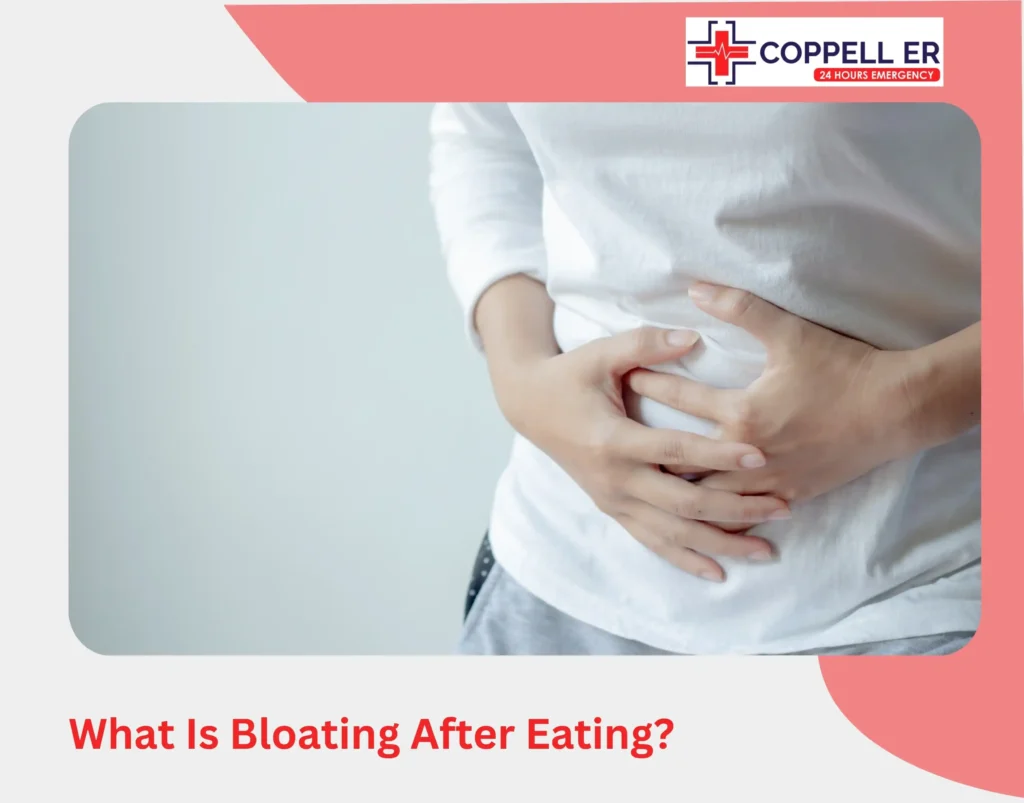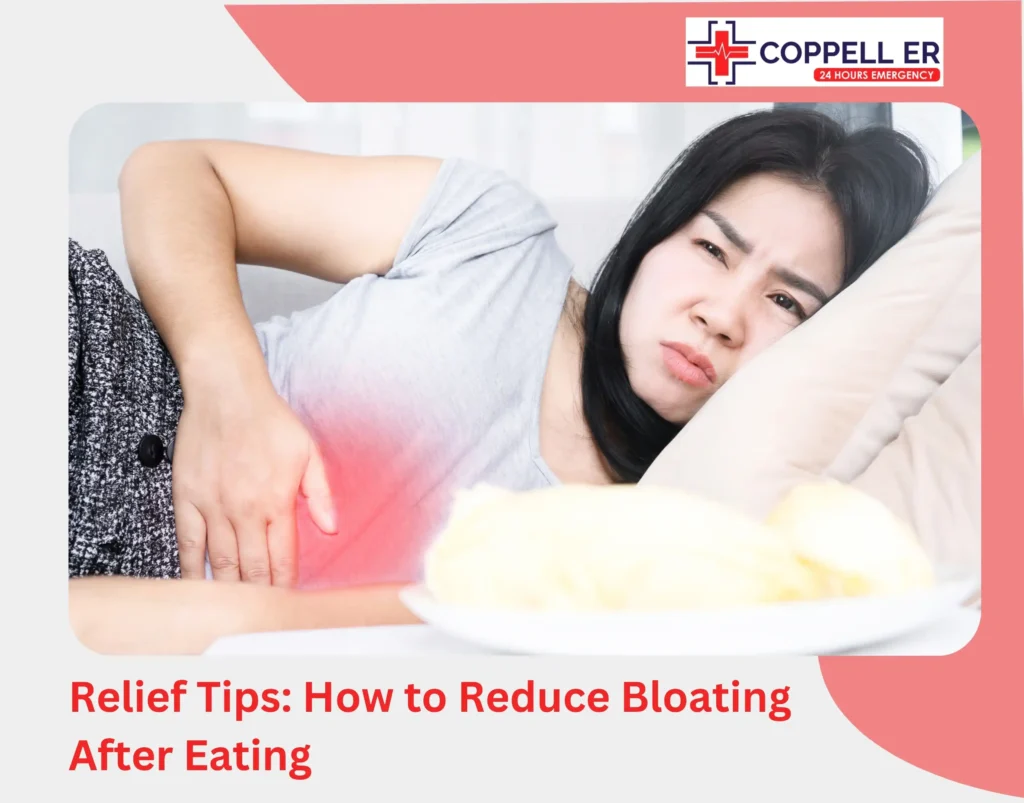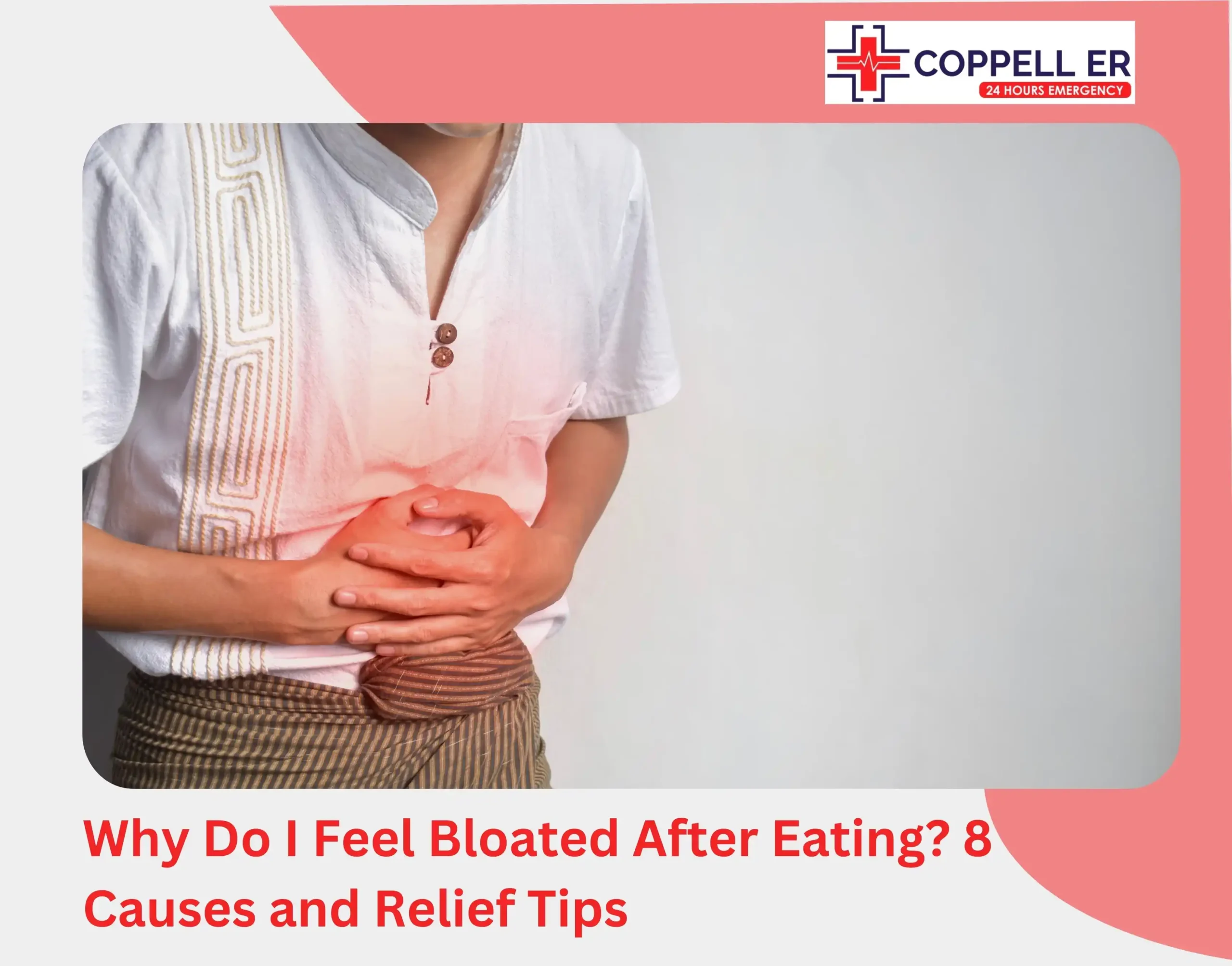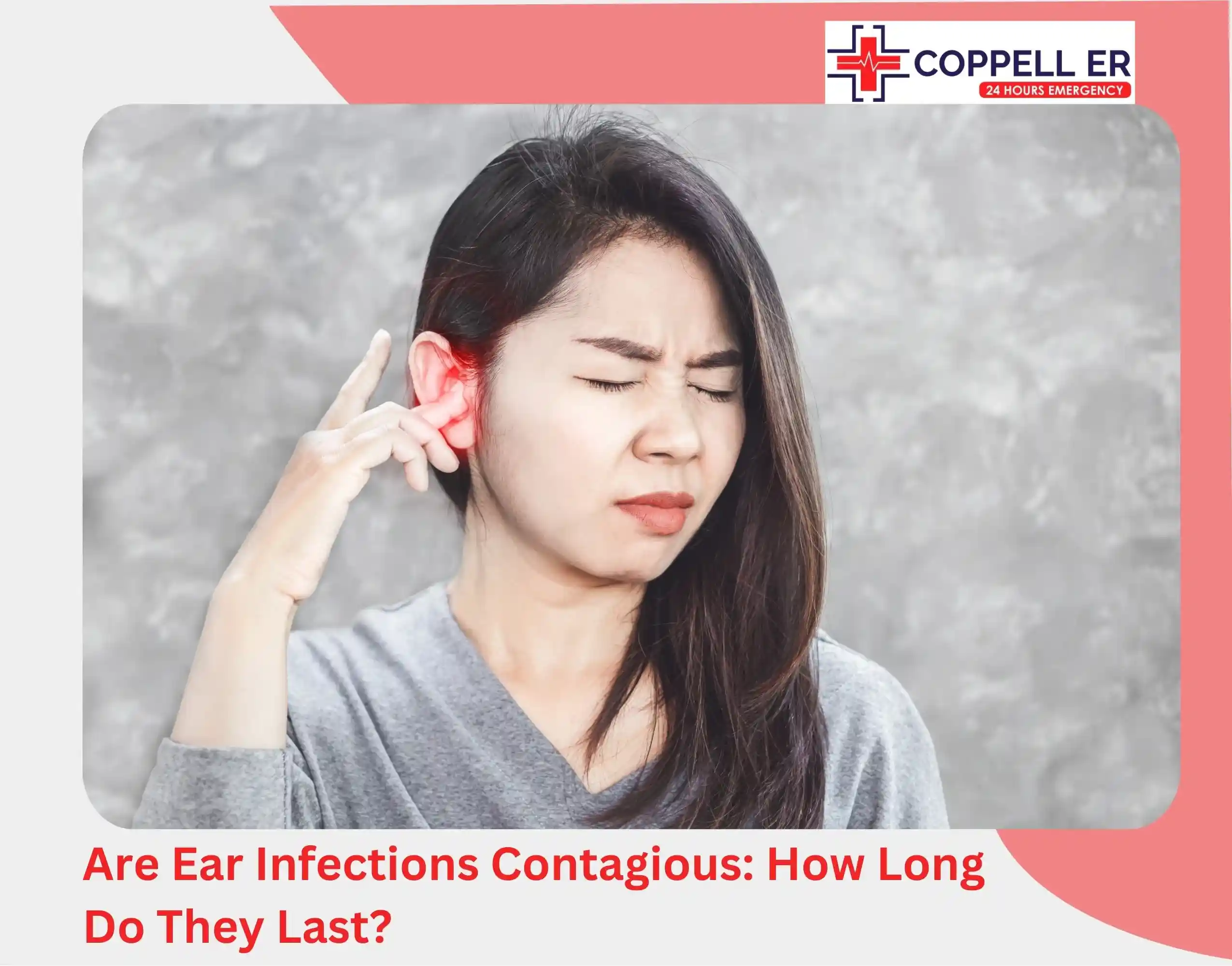Are you one of those people who skip meals before meetings or travel? Because if you don’t, your stomach builds pressure and starts making weird sounds. You feel self-conscious at family feasts, constantly stifling burps and hoping your stomach noises aren’t noticeable.
Beyond the discomfort, bloating after eating can signal serious gastrointestinal issues. Knowing the causes can help you catch potential problems in their early stages. Let’s explore what causes bloating after meals, how to get relief, and when it’s time to check in with a doctor.
What Is Bloating After Eating?

Bloating after meals refers to the feeling of tightness, fullness, or swelling in the abdomen shortly after eating. It may be accompanied by gas, burping, or abdominal rumbling. In some cases, your stomach may visibly expand, making your clothes feel tighter.
This condition can disrupt your day and make you dread mealtimes. Understanding the underlying causes is the first step toward lasting relief.
8 Common Causes of Bloating After Eating
Common reasons for feeling bloated after eating include:
1. Overeating
One of the most straightforward causes of bloating is eating too much in one sitting. When your stomach stretches beyond its comfortable capacity, it triggers feelings of fullness and distention.
Tip: Try eating smaller, more frequent meals throughout the day.
2. Eating Too Quickly
Eating too fast can cause you to swallow air, leading to gas buildup in the stomach. It also doesn’t give your brain enough time to register fullness, which can lead to overeating.
Tip: Slow down and chew your food thoroughly. Aim for 20–30 minutes per meal.
3. High-Fiber Foods
While fiber is essential for digestion, introducing too much fiber suddenly or eating high-fiber foods in large quantities can cause gas and bloating.
Culprits include: beans, lentils, broccoli, cabbage, and whole grains.
Tip: Introduce fiber gradually and drink plenty of water.
4. Carbonated Drinks
Sodas, sparkling water, and beer release carbon dioxide gas in your stomach, which can lead to bloating after meals.
Tip: Limit carbonated beverages, especially during meals.
5. Food Intolerances
Lactose intolerance, gluten sensitivity, and other food intolerances can lead to bloating, gas, and digestive discomfort. Common triggers include dairy, wheat, onions, garlic, and artificial sweeteners like sorbitol.
Tip: Keep a food diary to track which foods cause symptoms and consider working with a healthcare provider or dietitian.
6. Poor Gut Health
An imbalance in gut bacteria (dysbiosis) or a condition like small intestinal bacterial overgrowth (SIBO) can cause excessive gas and bloating after eating.
Tip: Probiotic therapy may help, but consult a professional first.
7. Constipation
When stool builds up in the colon, it can trap gas and create a bloated feeling.
Tip: Increase fiber gradually, stay hydrated, and move your body regularly to support digestion.
8. Stress & Anxiety
Stress impacts digestion through the gut-brain axis. It can slow down your digestive system or cause your abdominal muscles to tense up, leading to bloating.
Tip: Practice relaxation techniques like deep breathing, yoga, or mindfulness before and after meals.
Relief Tips: How to Reduce Bloating After Eating

Here are some effective tips you can use to ease bloating after meals:
- Chew Your Food Thoroughly: Digestion starts in the mouth. Chewing well reduces the burden on your stomach and minimizes swallowed air.
- Drink Warm Water or Herbal Tea: Peppermint, ginger, and chamomile teas can soothe the digestive tract and help reduce gas buildup.
- Take a Short Walk: Gentle movement after eating can stimulate digestion and help reduce bloating.
- Avoid Tight Clothing: If you’re prone to bloating after eating, wear loose-fitting clothes during and after meals to avoid compressing your stomach.
- Limit Gas-Producing Foods: Try an elimination diet to identify foods that cause bloating. Reintroduce them one at a time to see how your body reacts.
- Try Probiotics: Probiotics support healthy gut bacteria. Some people find relief from bloating with daily probiotic supplements or fermented foods like yogurt, kefir, kimchi, and sauerkraut.
- Consider Digestive Enzymes: These supplements can help break down difficult-to-digest foods like lactose or beans. Use them under professional guidance.
When to See a Doctor For Bloating After Eating?

Occasional bloating after eating is usually harmless. But if you experience the following symptoms, it’s time to seek medical attention:
- Severe or persistent bloating
- Unexplained weight loss
- Bloody or black stools
- Vomiting
- Chronic diarrhea or constipation
- Pain that interferes with daily life
These could be signs of a more serious condition like irritable bowel syndrome (IBS), celiac disease, or inflammatory bowel disease (IBD).
Final Thoughts
A satisfying meal should leave you feeling content and energized, not bloated or uncomfortable. By identifying your triggers, eating mindfully, and supporting your gut health, you can reduce or even eliminate post-meal bloating.
If bloating after eating persists or worsens, reach out to ER Coppell where board certified physicians are available 24/7 to treat you without any appointment. Our onsite imaging tools like ultrasound help us get to the root of your symptoms without sending you elsewhere. Let us help you get back to enjoying meals with your family and friends.
FAQs
1. Is bloating after meals normal?
Yes, mild bloating after eating is common. However, frequent or painful bloating isn’t normal and could be a sign of an underlying digestive issue.
2. How long does post-meal bloating last?
Bloating typically resolves within a few hours after eating. If it lasts longer or worsens over time, consider consulting a doctor.
3. What foods should I avoid if I get bloated easily?
Common culprits include beans, lentils, broccoli, cabbage, dairy, carbonated drinks, onions, garlic, and processed foods with artificial sweeteners.
4. Can stress cause bloating after meals?
Absolutely. Stress affects your digestive system and can lead to symptoms like bloating, gas, and cramps.
5. Do probiotics help with bloating after meals?
Many people find that probiotics improve digestion and reduce bloating, but results vary. It may take a few weeks to notice a difference.
6. Is bloating the same as weight gain?
No. Bloating is a temporary feeling of fullness or swelling in the abdomen, while weight gain is the accumulation of fat or muscle over time.
7. Should I skip meals to avoid bloating?
Skipping meals can actually make bloating worse due to gas buildup or overeating later. Stick to regular, balanced meals.




